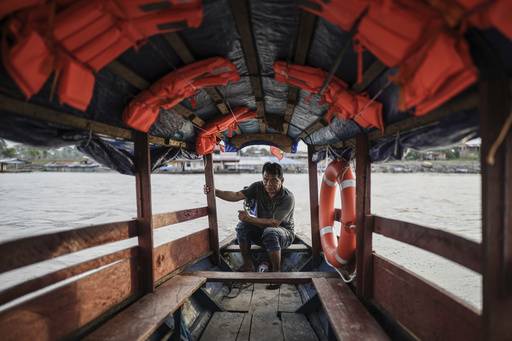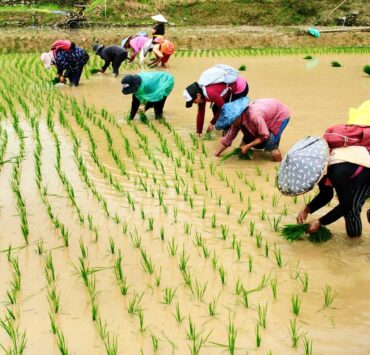Amazon leaders push joint rainforest protection plan

BOGOTA—Presidents from South America’s Amazon nations gathered Friday alongside indigenous leaders to agree on a joint plan to safeguard the world’s largest rainforest—a vast region seen as crucial to slowing global warming.
Gathering in Colombia’s capital of Bogota, the presidents of Colombia, Brazil and Bolivia joined the vice president of Ecuador and other top officials from Amazon nations.
“There is no individual exit from the climate crisis,” Brazil’s President Luiz Inácio Lula da Silva said during his declaration. “We need a new global governance with the authority to make countries keep their promises.”
They signed off on the “Declaration of Bogota,” a political blueprint to be formally adopted by Amazon nations, setting out a common vision for deeper cooperation across the region, which sprawls over more than 6.7 million square kilometers.
Ecuador’s Vice President María José Pinto urged leaders to move beyond “good intentions” to “concrete actions” to protect the Amazon, calling it both the region’s responsibility and its legacy to the world.
Everyone’s future
She said work must be led from the territories, listening to communities and respecting ancestral knowledge, and stressed the rainforest should be central to the global agenda because “what happens here determines the future of everyone.”
“In Ecuador, we believe solutions are not built from the capitals, but from the territories, listening to and working alongside our people,” Pinto said. “We must keep the Amazon at the center of the global conversation.”
On the eve of the gathering, foreign ministers from the eight members of the Amazon Cooperation Treaty Organization (Acto)—a little-known, decades-old intergovernmental body linking all the countries of the Amazon basin—approved 20 resolutions. They range from a new regional Indigenous Peoples’ (IP) Mechanism to initiatives on food security, climate risk and institutional strengthening.
Carbon sink
Scientists say the Amazon acts as a massive carbon sink absorbing more carbon dioxide than it releases and plays a key role in regulating rainfall patterns far beyond South America. Its loss could accelerate global warming and disrupt agriculture as far away as the US Midwest and parts of Europe, while threatening the survival of thousands of species found nowhere else on Earth.
Top officials also met on Thursday to review progress on commitments made at the Belem Declaration, a 2023 agreement signed in Brazil that pledged closer coordination on protecting the Amazon, including policies on deforestation, climate change and indigenous rights.
Each Acto country will appoint two government delegates and two indigenous delegates to the body, which will meet annually and can convene extraordinary sessions. Decisions must be made unanimously.
Financing IPs
Oswaldo Muca, who represents Colombia’s indigenous Amazon communities, told The Associated Press (AP) on the sidelines of Friday’s event that his community is “committed to safeguarding our territory and the Amazon, protecting it and caring for it.” He said they oppose mining and oil exploration because “it destroys our territory, destroys humanity and destroys life.”
Muca welcomed the ministers’ approval of a direct financing mechanism for indigenous peoples, calling it “the only way to avoid reaching the point of no return” and noting that “we are now part of that treaty mechanism.”
Asked if he believed the heads of state would follow through, Muca said they had “talked a lot about saving the Amazon,” but insisted that “our words must be more than political speeches … they must be real, concrete actions.”

















